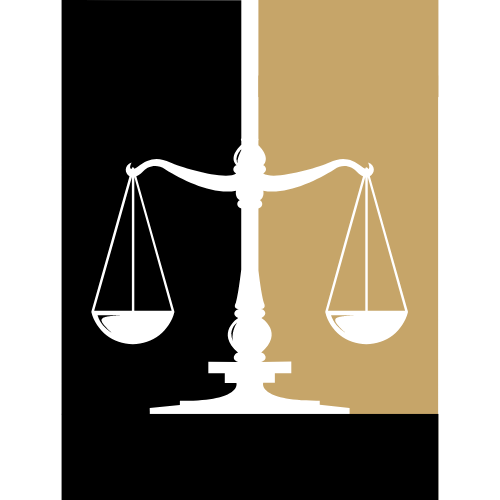In today’s fast-changing business world, it’s key to understand and follow regulatory rules. This guide offers business compliance tips for staying compliant and growing your business. We’ll cover important areas like corporate governance, ethical workplaces, risk management, data protection, fighting corruption, and going green.
By using these expert tips, your business can lower risks, improve its image, and grow for the long haul.
Key Takeaways
- Prioritize regulatory compliance to avoid costly penalties and reputational damage
- Establish a robust compliance management system to identify and address applicable laws and regulations
- Foster an ethical workplace culture through a well-defined code of conduct and ethical decision-making processes
- Implement comprehensive risk management strategies to proactively identify and mitigate potential threats
- Ensure data privacy and security to protect sensitive information and maintain customer trust
Prioritizing Regulatory Compliance
Keeping up with laws and regulations is key for any business, big or small. It’s not just about following the law; it’s also smart business. It helps you avoid big fines, damage to your reputation, and problems with how you operate.
Identifying Applicable Laws and Regulations
The first thing to do is figure out which laws and rules apply to your business. This depends on your industry, where you are, and how you operate. It’s important to keep up with changes in laws and check your compliance often.
- Research the relevant federal, state, and local laws that govern your industry
- Stay updated on any new or amended regulations that may impact your business
- Consult with legal and compliance experts to ensure you have a comprehensive understanding of your regulatory requirements
Establishing a Compliance Management System
After you know which laws and rules apply, it’s time to set up a strong compliance management system. This means having a clear plan for managing your rules, including who does what, keeping an eye on things, and updating your plan as needed.
- Designate a compliance officer or team to oversee and coordinate your compliance efforts
- Develop and implement policies, procedures, and controls to ensure adherence to regulatory requirements
- Regularly review and update your compliance management system to address changes in the regulatory landscape
By focusing on regulatory compliance and setting up a solid system, you protect your business. You also improve your reputation and set your company up for success in the long run.
Understanding Corporate Governance
Effective corporate governance is key to keeping in line with rules and building trust with stakeholders. It’s about the rules and practices that guide how a company makes decisions and is held accountable. As leaders, we must follow these principles to make our companies grow ethically and sustainably.
The board of directors plays a big role in corporate governance. They act as the protectors of the company, overseeing strategy, managing risks, and ensuring compliance. With clear accountability and openness, the board helps embed ethics and reduces risks across the company.
Corporate governance goes beyond the boardroom. It affects every part of the organization. By making sure our actions follow laws and best practices, we protect our business and keep stakeholders’ trust. This includes customers, employees, investors, and the wider community.
In today’s complex business world, corporate governance is more important than ever. By focusing on integrity, openness, and accountability, we lay the groundwork for lasting success. This success is built on corporate governance, ethical practices, and risk management.
“Effective corporate governance is not just a box-ticking exercise; it’s a strategic imperative that shapes the very fabric of an organization’s identity and success.”

| Key Principles of Corporate Governance | Description |
|---|---|
| Accountability | Clearly defined roles, responsibilities, and lines of authority within the organization. |
| Transparency | Open and honest communication, with timely disclosure of relevant information. |
| Fairness | Equitable treatment of all stakeholders, including shareholders, employees, and customers. |
| Sustainability | A long-term, strategic approach that balances financial performance with social and environmental considerations. |
Fostering an Ethical Workplace Culture
Creating a strong ethical workplace culture is key for compliance and lasting success. It starts with a detailed code of conduct and a focus on ethical choices at every level.
Developing a Code of Conduct
A good code of conduct guides employees, setting clear rules and values. It covers important topics like conflicts of interest, anti-corruption, data privacy, and environmental care. This document helps employees make choices that match the company’s values.
Encouraging Ethical Decision-Making
It’s vital to promote a culture of making ethical choices. This means training on the code, encouraging employees to report concerns, and having clear ways to do so. This way, ethical behavior becomes the standard, building trust and accountability.
“The strength of the company is reflected in the ethical fiber of its people.”
Compliance is more than just following rules; it’s a key to long-term success. By focusing on a strong code of conduct and ethical choices, companies build trust and integrity. These are essential for future growth.
Implementing Robust Risk Management
Effective risk management is key to a solid compliance program. It involves doing detailed risk assessments. This way, organizations can spot threats and take steps to manage them well.
Conducting Risk Assessments
Risk assessments are the base of a good risk management plan. They help find and evaluate risks that could harm a company’s compliance goals. This helps businesses know where to focus their efforts.
- Identify and categorize potential risks, such as regulatory changes, data breaches, or operational disruptions.
- Assess the probability and severity of each risk, considering factors like likelihood of occurrence and potential financial or reputational consequences.
- Develop and implement appropriate risk mitigation strategies, such as implementing internal controls, purchasing insurance coverage, or enhancing employee training.
- Continuously monitor and review the risk landscape, adjusting risk management plans as needed to address evolving threats and emerging compliance requirements.
By doing thorough risk assessments and using strong risk management strategies, companies can tackle compliance risks early. This helps avoid big fines, legal issues, and damage to their reputation.
“Effective risk management is not about eliminating all risks, but rather about understanding and managing them in a way that supports the organization’s strategic objectives.”

| Risk Management Practices | Benefits |
|---|---|
| Comprehensive risk assessments | Identify and prioritize critical risks |
| Robust internal controls | Mitigate the impact of potential risks |
| Continuous monitoring and review | Adapt to changing risk landscape |
| Employee training and awareness | Empower staff to recognize and address risks |
Ensuring Data Privacy and Security
In today’s digital world, keeping data safe is key for businesses. Data breaches and cyber threats are on the rise. Companies must take strong steps to protect sensitive info and keep customer trust.
Here are some best practices for data privacy and security:
- Implement Strong Access Controls: Use strict access rules, like multi-factor authentication and role-based permissions. This limits who can see sensitive data.
- Regularly Update Cybersecurity Measures: Keep your security up to date. This includes firewalls, antivirus software, and intrusion detection systems to fight new threats.
- Ensure Compliance with Data Protection Regulations: Know the data protection laws, like the General Data Protection Regulation (GDPR) and the Health Insurance Portability and Accountability Act (HIPAA). Follow them to avoid fines and damage to your reputation.
“Protecting data privacy and security is not just a legal obligation, but a moral and ethical responsibility that businesses must uphold to maintain the trust of their customers.”
By focusing on data privacy and security, businesses can protect sensitive info. They also build a strong reputation as reliable partners. This leads to long-term success and growth.
Business Compliance Tips
Keeping your business compliant is key to success. We’ve covered many strategies and best practices to help you stay on track. Here are the main business compliance tips to consider:
- Focus on regulatory compliance by knowing all laws and setting up a strong compliance system.
- Create an ethical work culture with a clear code of conduct and encourage ethical choices.
- Use a detailed risk management plan, including regular checks, to handle potential risks.
- Make sure your data privacy and security are top-notch to protect against breaches and cyber threats.
It’s also vital to fight corruption and bribery with strict policies and training. Reducing your carbon footprint is another important part of modern compliance.
| Compliance Tip | Key Benefits |
|---|---|
| Implement Compliance Management System | Streamlined processes, reduced risks, and enhanced accountability |
| Foster Ethical Workplace Culture | Improved employee morale, reputation, and stakeholder trust |
| Conduct Robust Risk Assessments | Proactive risk mitigation, informed decision-making, and reduced liabilities |
By following these business compliance tips, you can handle the complex rules, protect your business, and aim for long-term success.

“Compliance is not just a legal requirement, it’s a strategic imperative for any organization that wants to thrive in today’s business environment.”
Combating Corruption and Bribery
Corruption and bribery are big threats to businesses. They can hurt a company’s money and reputation. To fight these risks, companies need strong anti-corruption plans and training for their workers.
Anti-Corruption Policies and Procedures
Having clear anti-corruption policies is key. These policies should set strict rules for dealing with government officials and other groups. They should also have rules for reporting wrongdoings and punishing those who don’t follow the rules.
Training and Awareness Programs
Teaching employees about anti-corruption is very important. They need to know how to spot and report corruption or bribery. They should also learn about the dangers of not following the rules and how to make ethical choices.
“Fostering a culture of integrity and ethical behavior is vital in the fight against corruption and bribery.”
With strong anti-corruption plans and good training, companies can lower the risk of big fines, legal trouble, and damage to their reputation.
Maintaining Environmental Sustainability
In today’s business world, caring for the environment is key. Companies are working hard to lessen their impact on the planet. They focus on lowering their carbon footprints to meet rules and show they care about the planet.
Reducing Carbon Footprint
Using less energy is a big step in cutting down carbon footprints. Companies can do this by switching to LED lights and using energy-saving appliances. They can also make their HVAC systems work better.
Using clean energy like solar or wind power is another big help. It cuts down on pollution and lessens our need for fossil fuels.
Reducing waste and recycling are also important. Encouraging employees to reduce waste and recycle helps a lot. It makes a big difference in a company’s carbon footprint.

To keep the environment safe, we need to do everything we can. This means using less energy, using clean energy, and managing waste well. By doing these things, companies can follow the rules and help make the world a better place.
Enhancing Compliance Through Training
Effective compliance training is key to making sure your employees follow laws and rules. It helps create a culture of ethics and lowers the chance of big fines. By focusing on compliance training, you can make your workplace better.
To make a strong compliance training program, think about these important parts:
- Tailored Content: Make the compliance training fit your company’s needs. Cover the most important topics and rules.
- Interactive Delivery: Use videos, case studies, and quizzes to keep employees interested. This helps them remember important points.
- Regular Refreshers: Have regular updates to keep employees’ knowledge sharp. This is especially important as laws change.
Investing in good compliance training helps your employees make smart choices. It lowers risks and boosts your company’s success. The Diligent blog says, “Ongoing compliance training is key to keeping employees up-to-date with laws and rules.”
| Key Elements of Effective Compliance Training | Benefits |
|---|---|
| Tailored Content | Addresses the organization’s specific compliance needs and concerns |
| Interactive Delivery | Engages employees and reinforces key concepts |
| Regular Refreshers | Keeps knowledge and skills up-to-date as regulations evolve |
“Ongoing compliance training is essential for ensuring that your employees understand and adhere to relevant laws, regulations, and internal policies.”
With a solid compliance training program, you can empower your team. This builds a culture of ethics and lowers the risk of breaking rules. It helps your company grow and succeed in the long run.
Leveraging Technology for Compliance
In today’s fast-changing business world, staying on top of compliance is key. Luckily, technology can help a lot. With compliance technology, companies can make their workflows smoother, keep all data in one place, and spot compliance issues fast.
Compliance Management Software
Compliance management software is a top tool for keeping up with rules. It automates tasks like managing documents, sharing policies, training, and reporting. This software puts all compliance data and tasks in one easy-to-use platform. It makes things clearer, more accountable, and efficient.
Data Analytics and Monitoring
Using data analytics and monitoring tools also helps a lot. They give deep insights into how well your company follows rules. By looking at lots of data, these tools find risks, oddities, and help improve things. This way, compliance teams can make better choices and tackle problems early.

Technology is now a crucial partner in achieving strong compliance. By using compliance technology, companies can manage compliance better, understand more, and keep up with the ever-changing rules.
Auditing and Continuous Improvement
Keeping up with compliance is a never-ending task. It needs regular audits and a drive for constant betterment. At the core of a good compliance program are strong internal and external audits. These help spot any holes or weaknesses in your compliance efforts.
Internal and External Audits
Internal audits let you check your compliance policies and controls closely. They make sure your team follows them correctly. These audits find areas to improve and guide your ongoing compliance work.
External audits by independent experts add another layer. They give an unbiased look at your compliance program. These audits check if your controls work well, find hidden issues, and suggest ways to get better.
By focusing on compliance auditing and continuous improvement, you can keep up with changing rules. You’ll also be ready for shifts in your industry or business.
“Compliance is not just a box to be checked, but a mindset that permeates every aspect of your organization.”
It’s key to regularly check and update your compliance program. Use both internal and external audits. This keeps your organization compliant for the long haul and promotes ethical behavior.
Building Stakeholder Trust
Building and keeping stakeholder trust is key to business success. Trust is the base of strong relationships. It affects your finances, customer loyalty, and employee happiness.
Deloitte’s research shows trust comes from being competent, reliable, transparent, and caring. To focus on trust, companies must make it a big deal. They should work on it every day and let leaders lead the way.
Showing you care about the community and the environment is crucial. This makes your company look good and responsible. It helps your reputation and makes you stronger.
“Stakeholder trust is the bedrock of organizational success. By prioritizing trust-building efforts, companies can enhance their long-term sustainability and thrive in an increasingly complex business landscape.”
To build trust, be open and honest with your stakeholders. Share updates, listen to feedback, and solve problems quickly. This builds trust and respect.
- Have a clear code of conduct that shows your values.
- Use strong risk management to protect your stakeholders.
- Invest in training that teaches ethics and corporate social responsibility.
By focusing on stakeholder trust, you set your business up for success. It makes your company strong and ready for change.
Navigating Global Compliance Challenges
As businesses grow globally, dealing with global compliance is crucial. It’s important to follow international regulations in many places. Each country or region has its own rules, making it a big challenge.
One way to tackle this is by using a single, all-in-one compliance system. This system helps keep track of all rules and makes sure everyone follows them. With advanced technology, companies can stay on top of changes in laws.
It’s also key to build a culture of compliance. This means making it a part of the company’s values. Empowering employees to spot and fix problems helps the company stay strong against changing rules.
| Key Compliance Challenges | Strategies for Navigating Global Compliance |
|---|---|
|
|
By tackling global compliance head-on, companies can protect themselves. They also set themselves up for success in the changing world of international business.
BUSINESS CONTRACT REQUIREMENTS: ESSENTIAL GUIDELINES
Conclusion
We’ve looked into the world of business compliance, finding key strategies and best practices. These help organizations deal with the complex rules they face. We’ve shown how to make sure your business follows the law and grows in the long run.
By using strong risk management, protecting data, and fighting corruption, your company can stand strong. Adding environmental care and training shows we’re serious about doing business the right way.
Compliance is more than just following rules; it’s what makes your business what it is. With technology, audits, and trust from stakeholders, you can lead your field. This guide ends with a call to follow business compliance. It’s the way to grow, make money, and build a lasting reputation.
